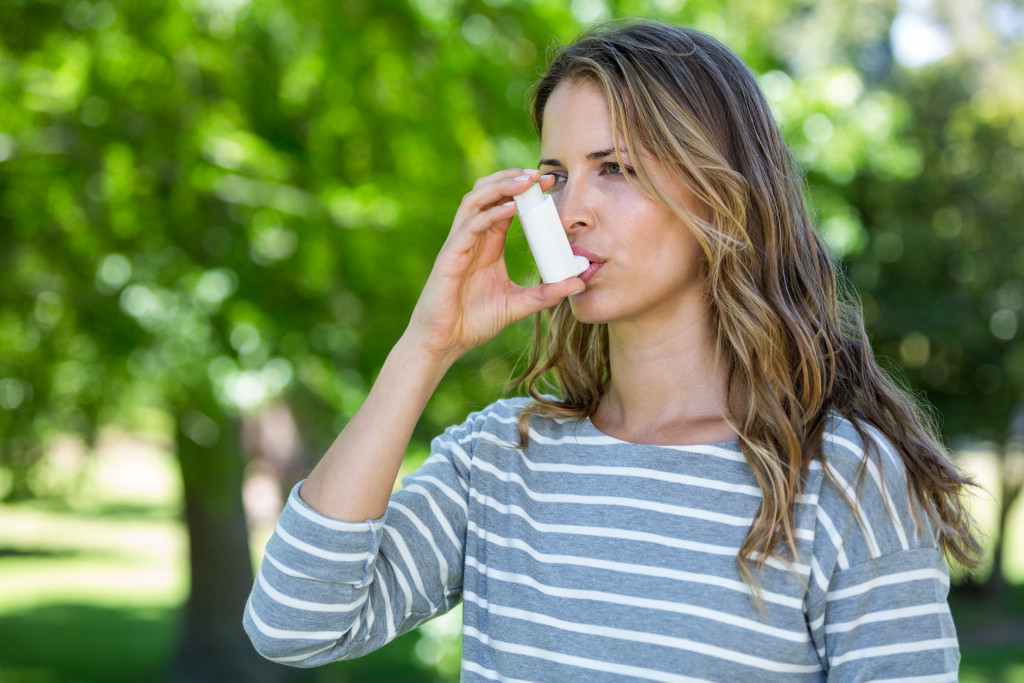- The respiratory system is crucial for breathing and can be affected by various diseases.
- Common respiratory diseases include COPD, asthma, pneumonia, lung cancer, and tuberculosis.
- Symptoms, causes, and treatments vary for each type of respiratory disease.
- To avoid respiratory diseases, implement healthy lifestyle choices such as exercise, healthy eating, and vaccination.
- Protective gear and avoiding triggers like air pollution and smoking can also prevent respiratory diseases.
The respiratory system is an essential part of our body, exchanging oxygen and carbon dioxide. It includes organs such as the lungs, trachea, bronchi, and diaphragm. Diseases that affect these organs can cause severe harm to your health and well-being. Here’s what you need to know about respiratory diseases, the common types of respiratory diseases and their causes, symptoms, and treatments, and how to avoid them.
What Are Respiratory Diseases?
Respiratory diseases affect the organs and structures that help people breathe. This includes the lungs, bronchi, trachea, larynx (voice box), diaphragm, and nose. These illnesses range from minor ailments like the common cold to more serious conditions like lung cancer. Here are some common types of respiratory diseases.
Chronic Obstructive Pulmonary Disease (COPD)
COPD is a group of diseases that cause airflow obstruction and breathing difficulty. It includes chronic bronchitis and emphysema, primarily caused by smoking, air pollution, and genetics. Symptoms include cough, wheezing, shortness of breath, and chest tightness. Treatment includes quitting smoking, bronchodilators, steroids, and oxygen therapy.

Asthma
Asthma is a chronic inflammatory disease of the airways that causes breathing difficulty due to inflammation and narrowing of the airways. Triggers include allergens, exercise, stress, and respiratory infections. Symptoms include cough, wheezing, shortness of breath, and chest tightness. Treatment includes avoiding triggers, bronchodilators, steroids, and immunotherapy.
Pneumonia
Pneumonia is an infection of the lungs caused by bacteria, viruses, fungi, or parasites. It can cause chest pain and shortness of breath, leading to complications such as sepsis, respiratory failure, and death. Treatment includes antibiotics, antivirals, and supportive care.
Lung Cancer
Lung cancer is a malignant tumor that grows in the lungs and can spread to other body parts. It is primarily caused by smoking, exposure to air pollution, and workplace toxins such as radon, arsenic, and asbestos. Symptoms include cough, shortness of breath, chest pain, weight loss, and fatigue. Treatment includes surgery, radiation therapy, chemotherapy, and targeted therapy.
Tuberculosis (TB)
TB is caused by the bacteria Mycobacterium tuberculosis, which affects the lungs but can also affect other parts of the body. It can be transmitted through the air when an infected person coughs or sneezes. Symptoms include cough, fever, night sweats, weight loss, and fatigue. Treatment includes antibiotics and, in severe cases, hospitalization.
Avoiding Respiratory Diseases
There are various ways to avoid respiratory diseases. Here are some of them:
Low-Intensity Exercises
Exercise is one of the keys to healthy lungs. Low-intensity exercises such as walking, jogging, and cycling help improve lung function and reduce the risk of respiratory diseases. Try out Qigong if you also want an exercise that can help improve your breathing. This kind of exercise combines deep breathing and meditation techniques. If you don’t want to leave the comfort of your home, consider applying for online qigong classes. These classes are done without in-person contact and are usually led by an experienced Qigong instructor.

Quitting Smoking
Smoking is the primary cause of COPD and lung cancer. Quitting smoking can improve lung function, reduce your risk of respiratory diseases, and help you breathe better. Talk to your doctor if you need help quitting smoking. They can offer advice and support and prescribe nicotine replacement therapy and medications to help you quit.
Avoid Exposure to Air Pollution
Air pollution can worsen lung function and increase the risk of breathing problems and respiratory diseases. To reduce exposure, stay indoors when air quality is bad, use an air purifier in your home, and limit outdoor activities during poor air quality days.
Eat Healthy Foods
Eating a healthy, balanced diet can help keep your lungs healthy and reduce the risk of respiratory diseases. Include plenty of fresh fruits and vegetables in your meals and foods rich in antioxidants like nuts, seeds, and whole grains.
Wear Protective Gear
Certain occupations and activities require protective gear to protect from respiratory diseases. Wear a mask when working in areas with high dust or chemicals, and wear goggles and gloves when engaging in activities like woodworking, painting, and welding.
Get Vaccinated
Vaccines are important for preventing infectious respiratory diseases such as pneumonia and tuberculosis. Talk to your doctor about getting vaccinated, and get the recommended vaccinations for your age group.
Respiratory diseases can seriously impact our health, so taking steps to protect yourself from them is essential. These include avoiding triggers such as smoking and air pollution and staying healthy. Following these tips can lower your risk of developing respiratory diseases and keep your lungs healthy.